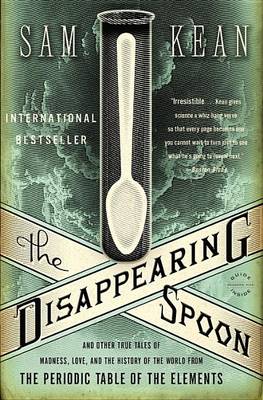Reviewed by celinenyx on
This book is exactly what it is made out to be. With a full title of The Disappearing Spoon And Other True Tales of Madness, Love, and the History of the World from the Periodic Table of the Elements, it tells you everything you should know. Kean starts with the periodic table, talks about how it was created, and from there, tells of fun, tragic, or interesting stories about all of the elements.
Most of the science in The Disappearing Spoon is understandable with a high-school knowledge of chemistry. But even if you don't know enough chemistry, those parts can easily be skipped. Most of the book is heavily inspired by scientific history, rather than science itself. If you want to know more about the bickering and rivalries between chemists, this book is perfect. The Disappearing Spoon is highly entertaining, and it's clear the author has done extensive research into the lives of the scientists he talks about. My only gripe is that he has the tendency to lose direction sometimes, and flounders between all of the threads of stories he started, no longer clear on exactly what point he wanted to make.
Reading updates
- Started reading
- 30 December, 2014: Finished reading
- 30 December, 2014: Reviewed
